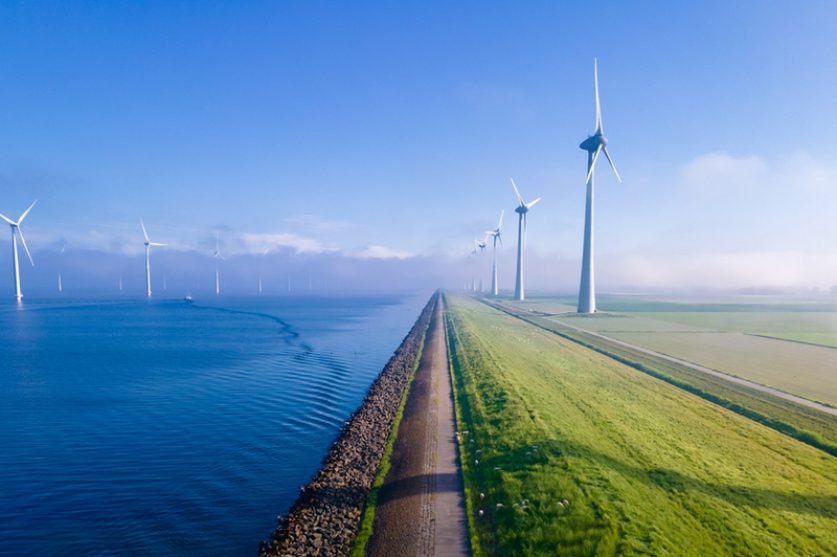
€41bn was invested in wind power technology in Europe in 2021, financing a record 25GW of capacity.
The data, published in Wind Europe’s Financial And Investment Trends report, highlights growing investor confidence as one of the reasons for the positive figures.
While this year’s figures actually dropped by 11% compared with 2020, this can be explained by the higher rate of on-shore wind farm projects, which are cheaper than their offshore counterparts.
Broken down by country, the UK was found to have invested the most, with €8.8bn. There was also fairly even input across nations, with eleven countries spending €1bn or more, boding well for widespread uptake of wind farms across the continent.
Despite this, Wind Europe has warned that current levels of investment are not enough. For reference, the EU funded 19GW of projects this year but needs to generate 32GW annually in order to meet their own targets of 40% renewable energy by 2030.
However, there are a range of factors that could hinder progress. Currently, all of Europe’s wind turbine manufacturers are operating at a loss. This is in part due to higher steel prices, rising shipping costs and supply chain issues. Wind Europe has also said that permitting regulations must improve, alongside policy changes that support much-needed investment in wind energy.
Increasing Europe’s self-sufficiency and renewable output have become more important in recent months. Russia’s invasion of Ukraine and the threat of Moscow turning off natural gas pipelines has many nations scrambling to meet their own consumption requirements. Even before this, volatility in the energy market caused prices to skyrocket, making reliance on other nations less of an appealing option.
Ensuring that this output comes from a renewable source is critical. A large proportion of EU nations have pledged to net zero by 2050, which can only be achieved by a rapid shift away from traditional energy sources. The current volatility and geopolitical conflict may even help with this, although the transitional period is likely to be a challenging one for many nations.




